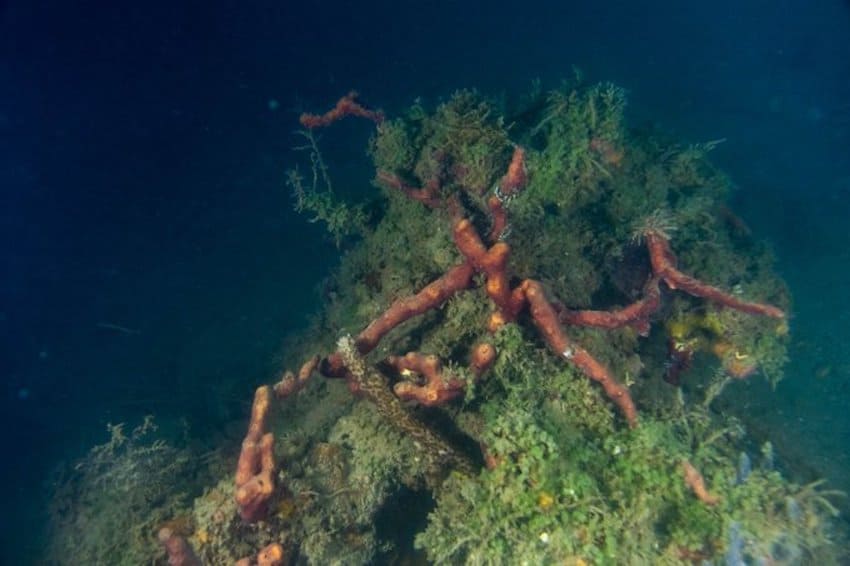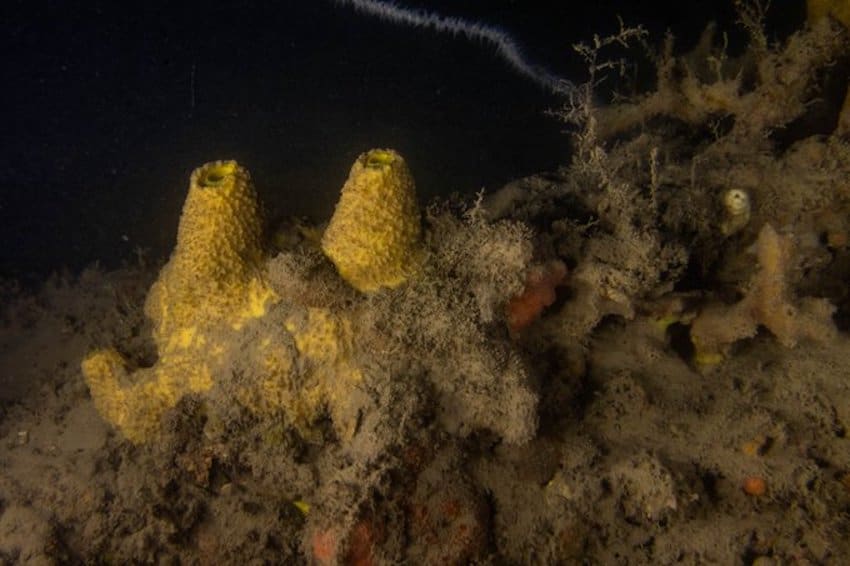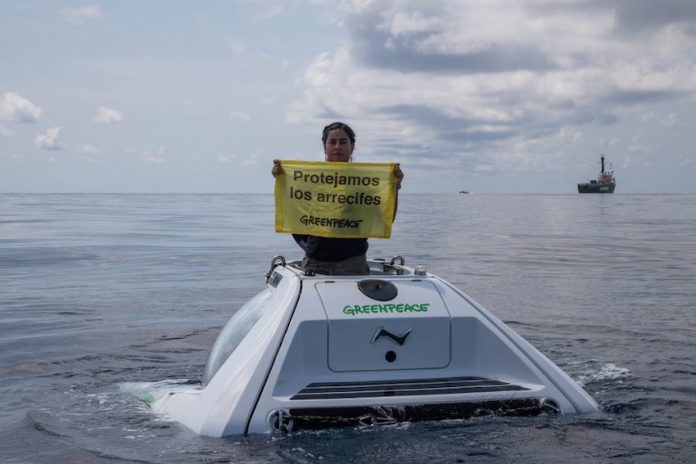Greenpeace México urged authorities to protect newly discovered reefs in the Gulf of Mexico, which sit near the planned construction site of a gas pipeline.
The environmental organization found the reefs about 30 kilometers off the coast of Veracruz, at depths between 50 and 80 meters, as part of an investigation aboard its Arctic Sunrise ship. Multiple marine species could be observed, Greenpeace said, including fish, squid, starfish, sponges, whip corals, soft corals and at least one species of scleractinian (hard) coral.

Greenpeace carried out its investigation in collaboration with the University of Veracruz’s (UV) Biological and Agricultural Sciences department and the Interdisciplinary Collective for Applied Science and Environmental Law (Cicada). The team relied on a submersible drone with an integrated camera to observe the reefs, which have not been widely studied due to their depth.
“We have documented new reef ecosystems never before seen or studied, since such depth had not previously been reached in this area. As a result, we know that management plans, actions and conservation tools are required,” Greenpeace México said in a statement.
“They are mesophotic reefs. They do not receive as much light as the ones we normally observe, which are shallower. The next step would be to identify the species found there … we already have an important point of interest, and from here we can continue to engage in more research,” said Alejandro Muñóz Aldape, a PhD student at the National Technological Institute of Mexico.
Local fishermen knowledgeable about the area helped the team get closer to the reefs. After their drone documented the ecosystem’s existence, some of the researchers boarded a submarine to further explore the area. Greenpeace stated that it will release the final results of its investigation in September.

The reefs lie near the site where Canadian company TC Energy and Mexico’s Federal Electricity Commission (CFE) are planning to build the 715-km Puerta al Sureste gas pipeline, which will carry gas from Veracruz to Tabasco. Greenpeace warned that this puts already protected reef ecosystems in “serious danger,” while also compromising those that do not yet have protection. The organization has appealed to Mexico’s Agency for Security, Energy and the Environment (ASEA) to halt the project.
“Today more than ever it is important to protect these reef ecosystems, since they provide protection to the coasts and shelter many different species, many of which have commercial value and allow the fishing communities of Veracruz to survive,” said Viridiana Lázaro, the coordinator for Greenpeace’s investigation.
With reports from Vanguardia, Milenio and Aristegui
